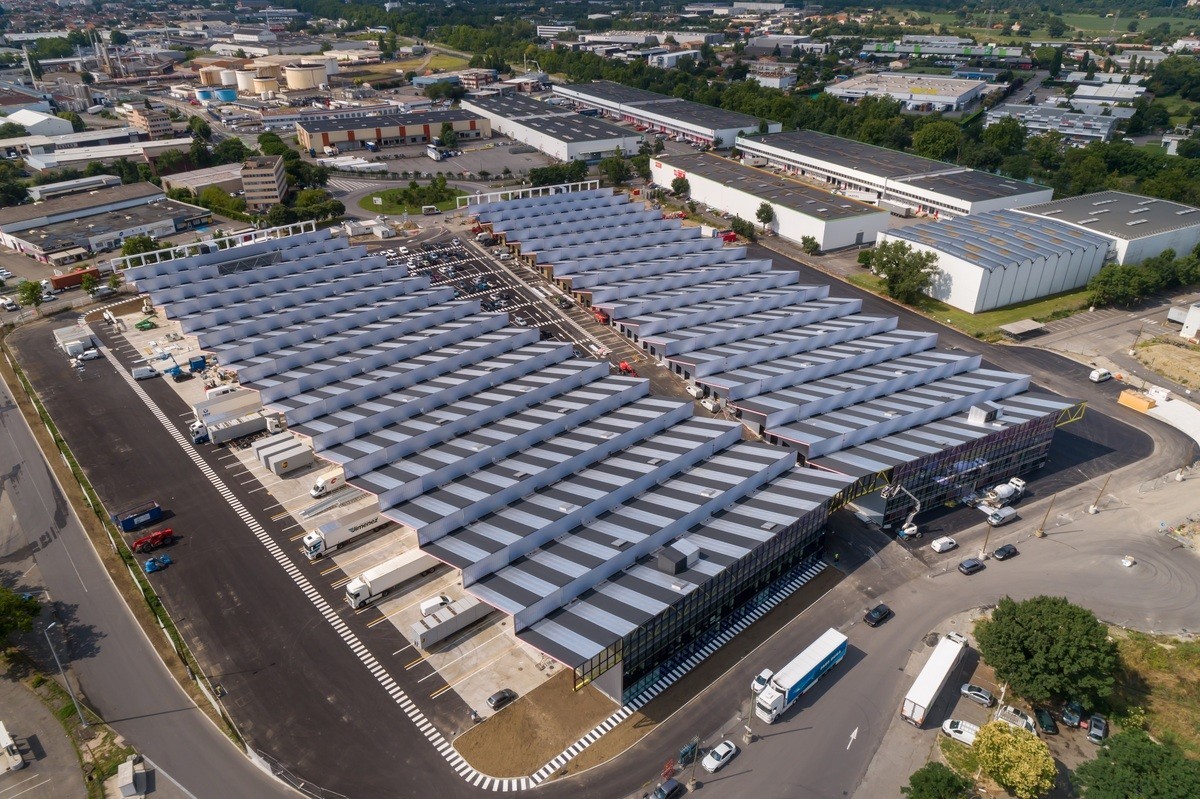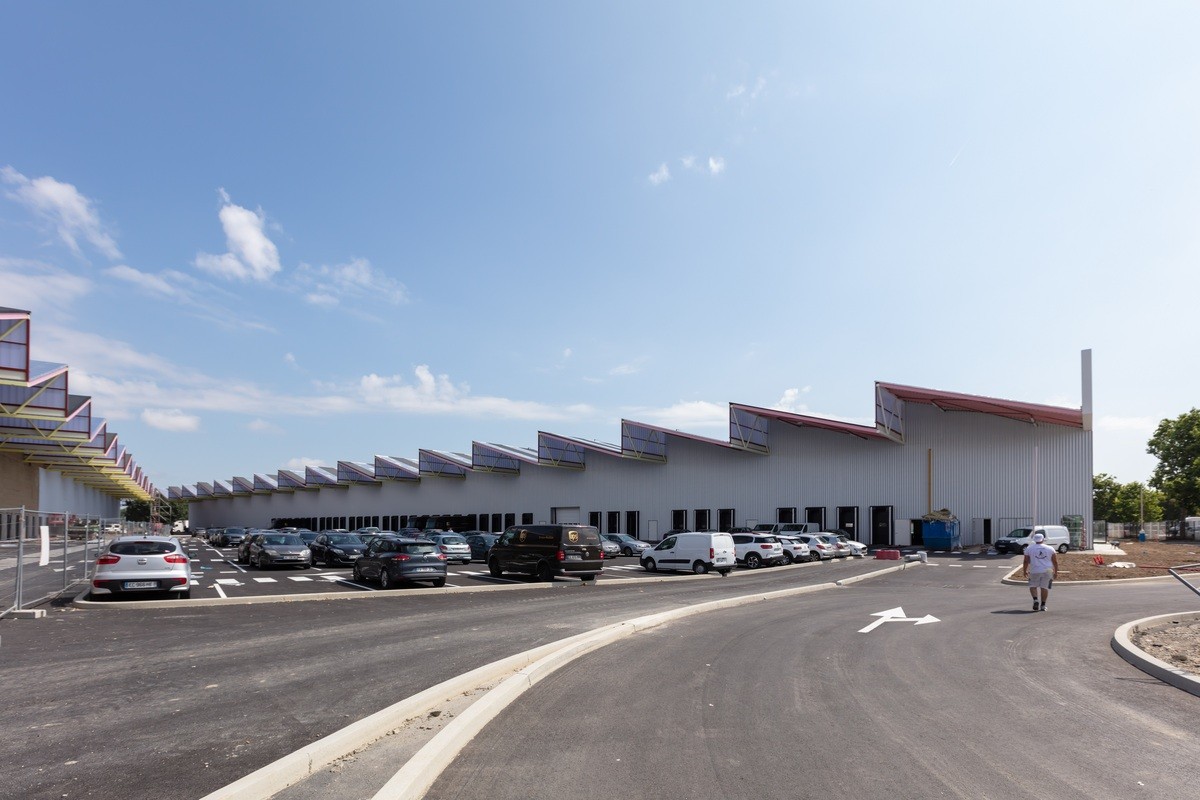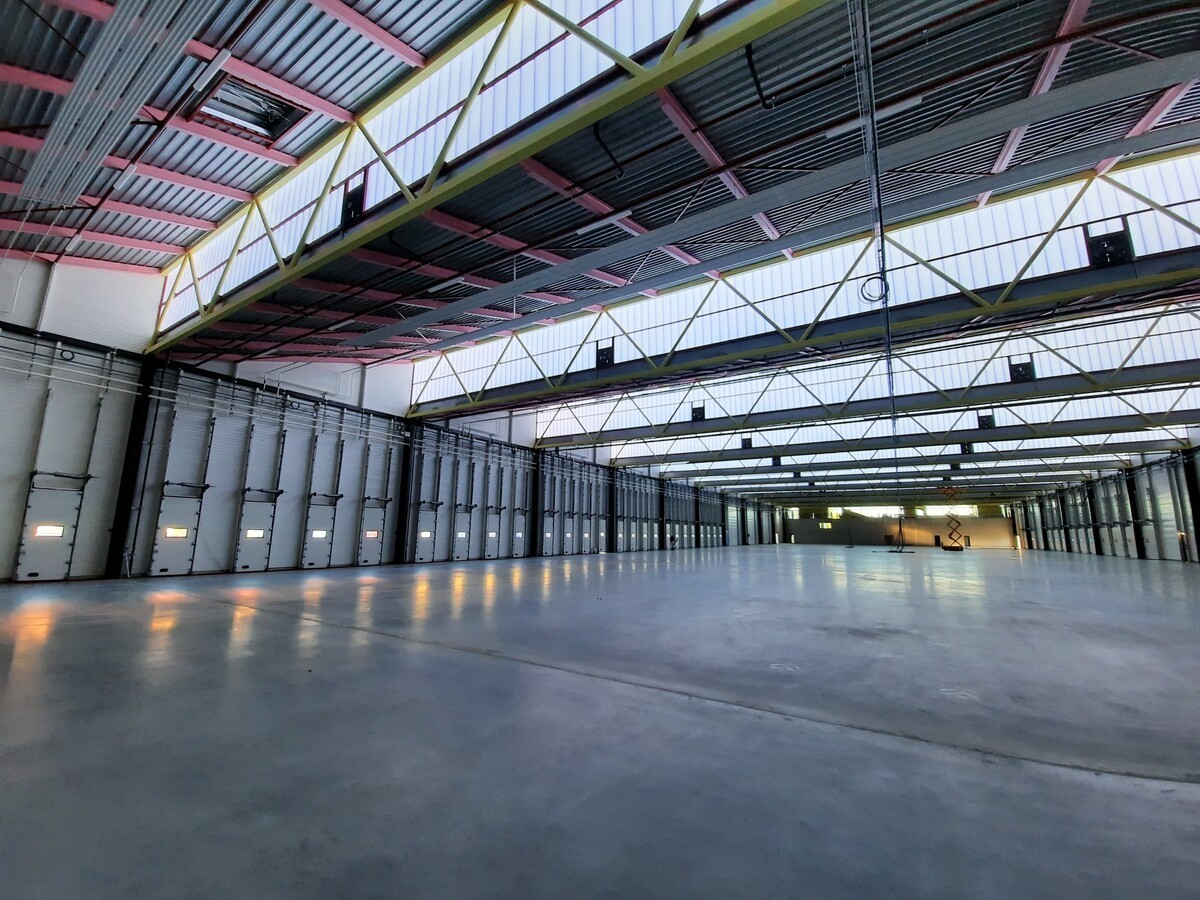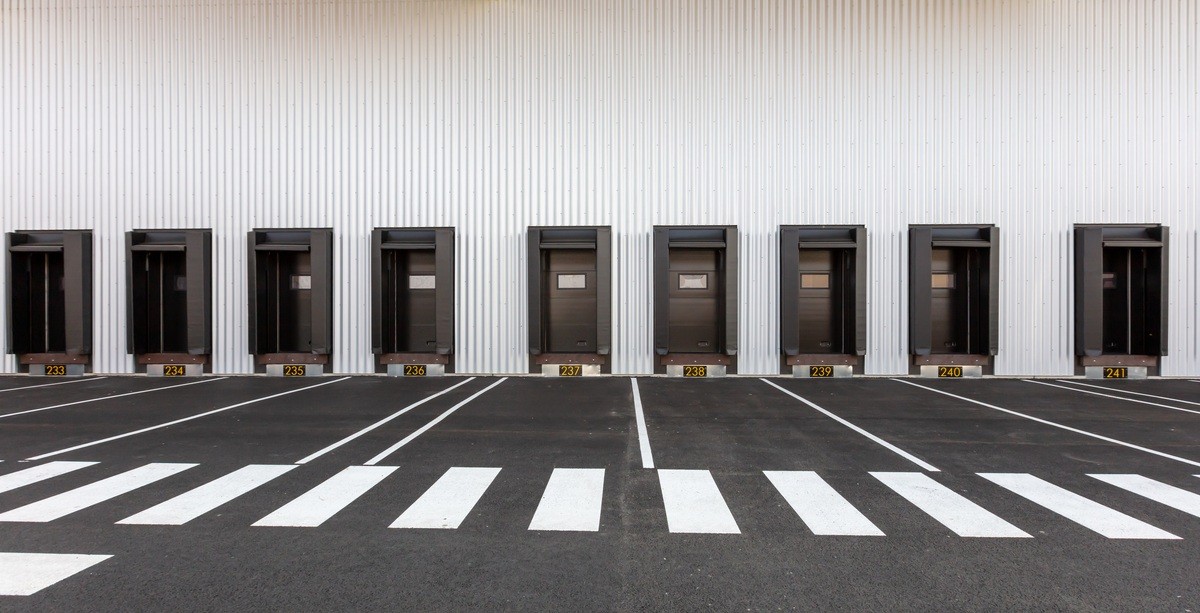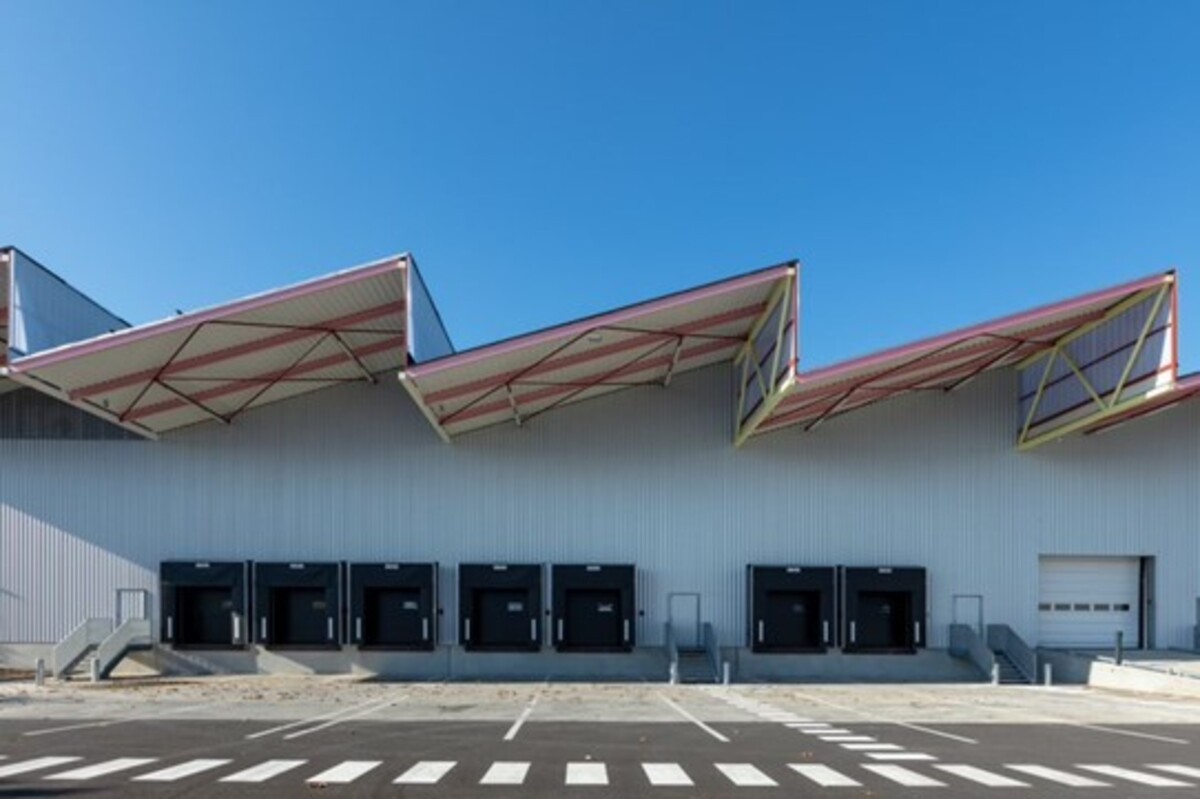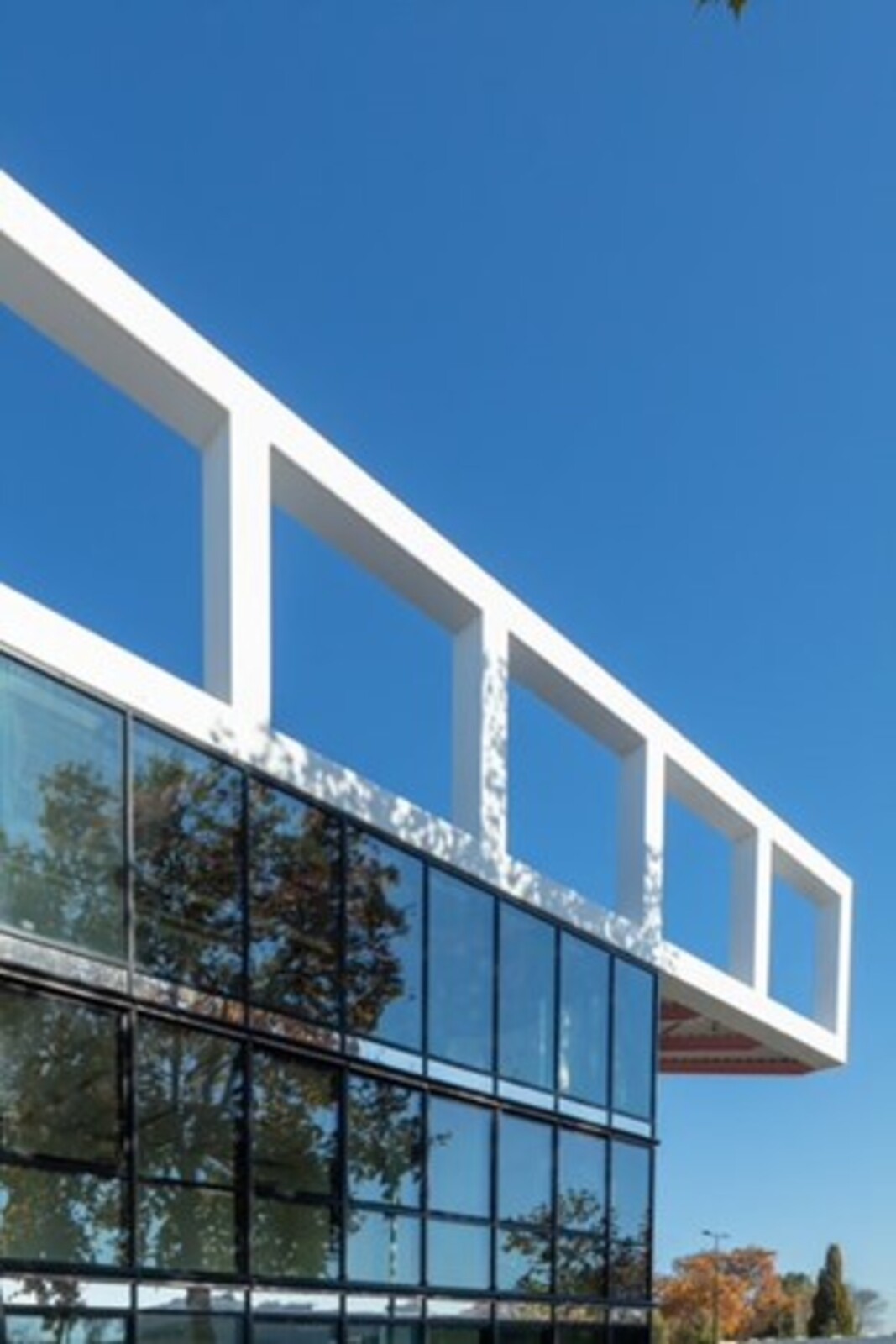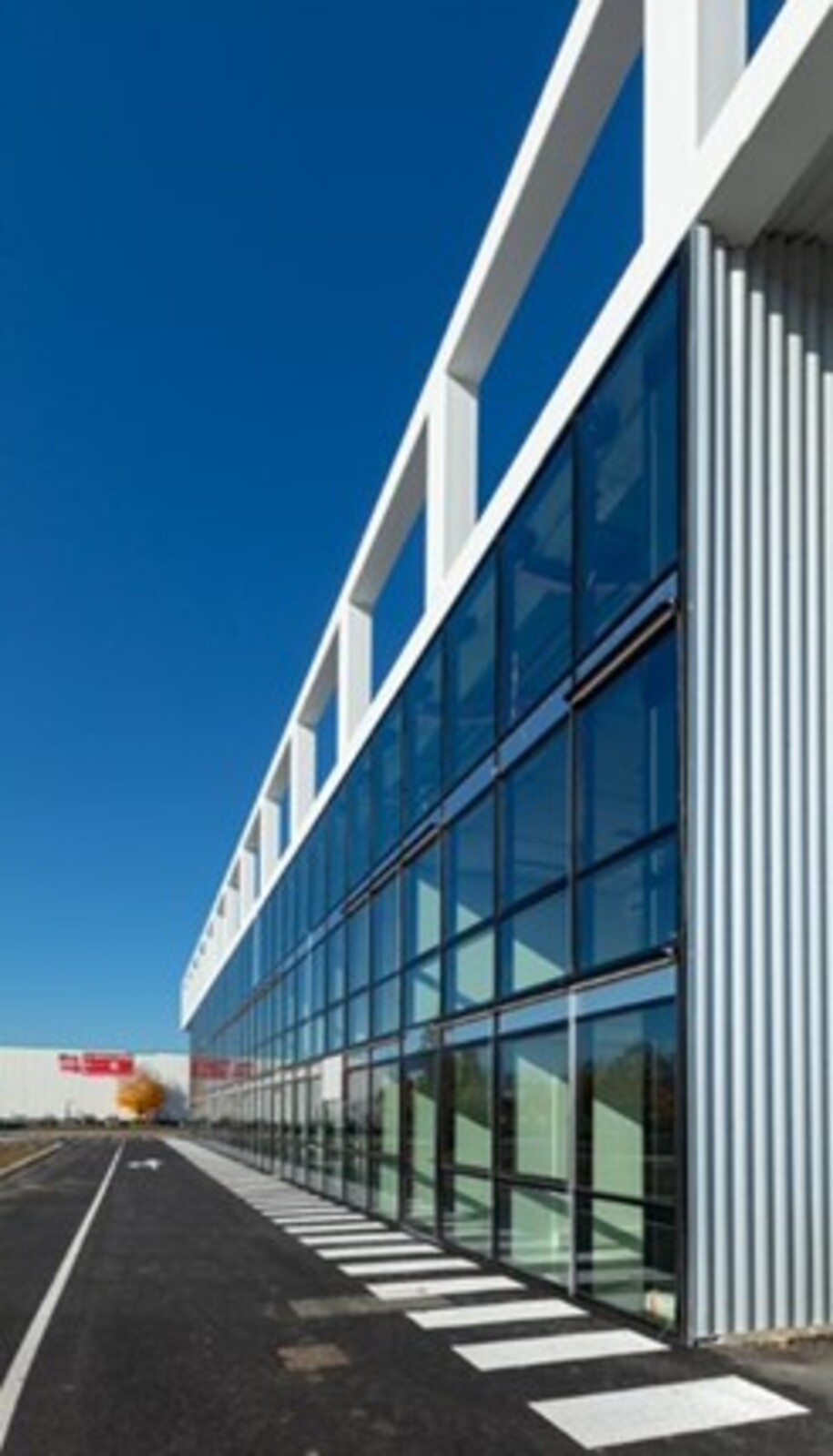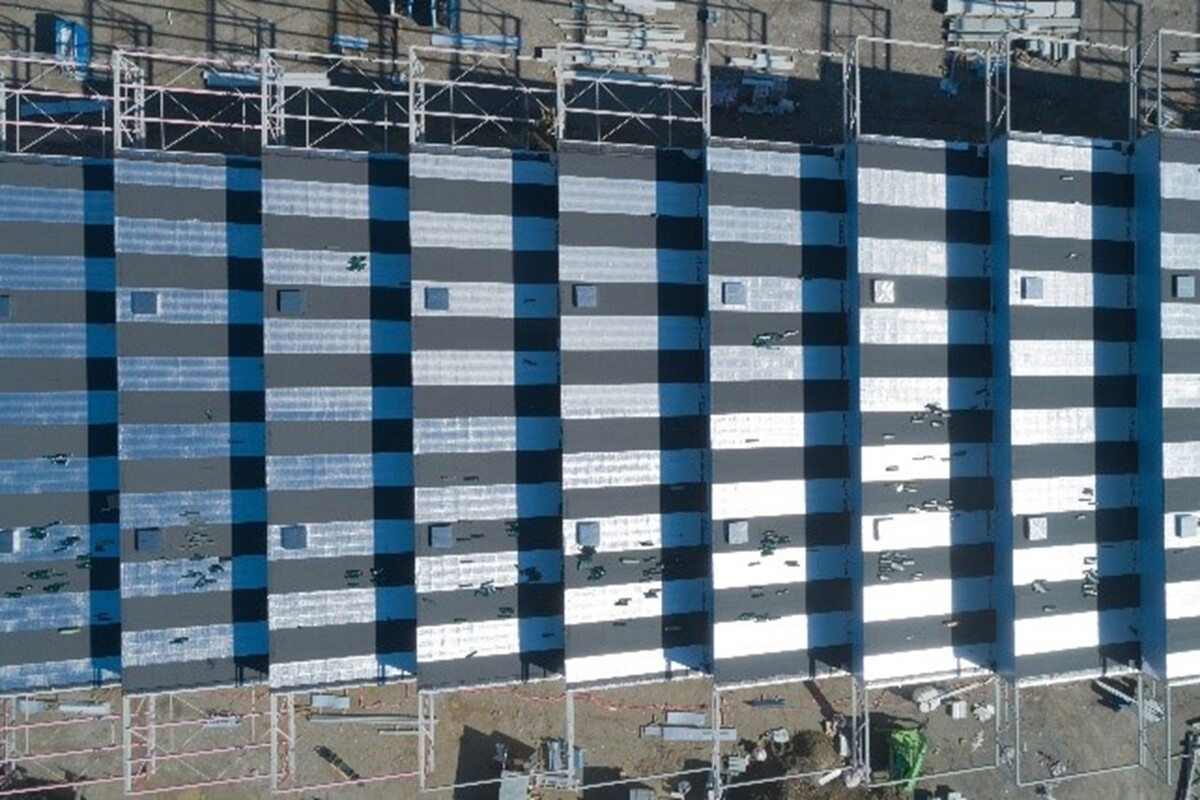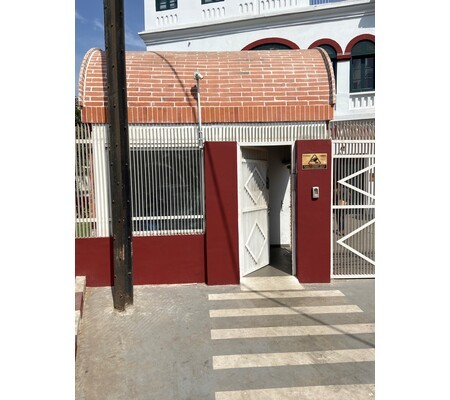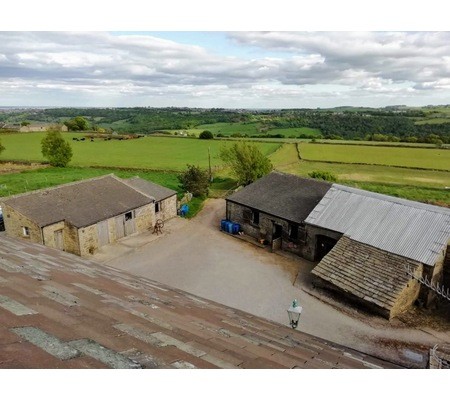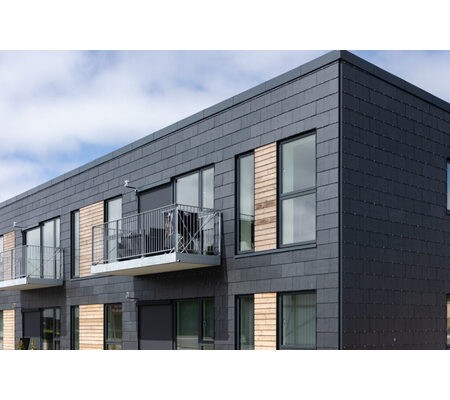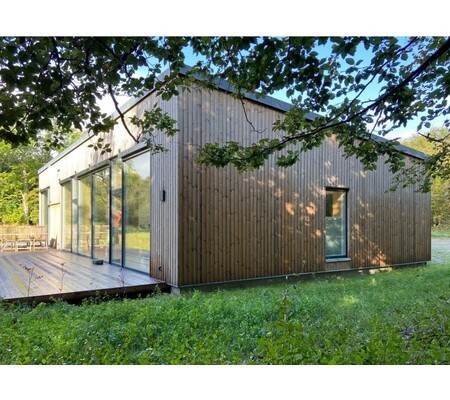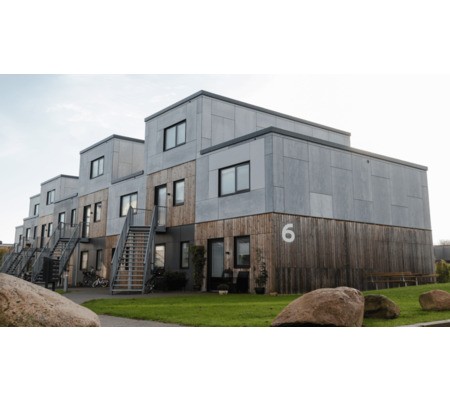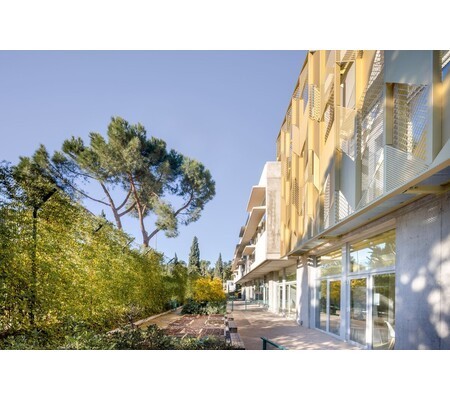Toulouse 'last mile' logistics zone
Last modified by the author on 21/04/2022 - 09:35
- Year of commitment : 2022
- Address 1 - street : 8 avenue de fondeyre 31200 TOULOUSE, France
- Diameter : 19500
- Green energies : Cogeneration, Gas
- Sustainable mobility : Multimodal transit HUB for freight, Soft modes of transport, Urban Logistics, Parking, Charging station
- Water cycle : Phytoremediation
-
28 500 000 €
- Builder
Toulouse Urban Logistics - Manager / Dealer
Toulouse Urban Logistics
Tomorrow's cities will be decarbonised. Logistics and goods transport must contribute to this transition. With the Toulouse logistics platform, we are inventing the urban logistics of tomorrow.
The challenges of sustainable mobility are often focused on daily travel. However, goods transport has a significant carbon footprint - responsible for almost 40% of fine particles - even though it accounts for only 30% of the road network and 10-20% of urban traffic. Some local authorities, such as the Toulouse metropolitan area, are developing solutions and/or partnerships to tackle this problem.
The Toulouse Logistique Urbaine platform on the Fondeyre zone in Toulouse is a large peri-urban logistics zone, consisting of two buildings and a HGV car park with 144 spaces. The first building houses UPS activities and space for logistics specialists in fresh and cold products. The second building houses, in part, the services of URBY, a subsidiary of the La Poste group and the Banque des Territoires, with a La Poste parcel platform. Eventually, 70,000 parcels will be collected daily.
This project, conducted by the LUMIN'Toulouse consortium, of which Poste Immo is a member, is part of a sustainable and innovative territorial vision of urban logistics by participating in the Toulouse metropolis policies of pooling transport flows and relieving congestion in the city centre. It also contributes to La Poste Group's objectives of ensuring 100% clean delivery (zero and low emissions) in 225 cities in Europe, including 22 French cities, by 2025.
A network project to reduce pollution in cities
Firstly, this project meets an objective supported by some local authorities: to build logistics nodes on the outskirts of cities to receive deliveries and then distribute them in the city using low-carbon or light vehicles, such as electric or NGV vehicles or cargo bikes. Secondly, this project reflects a desire to pool the flow of goods transport by bringing together the delivery processes and key stages.
The Toulouse Logistique Urbaine platform is strategically located 4km away from Toulouse city centre and connected to the main transport infrastructures of the Toulouse conurbation. It is located near the Toulouse National Interest Market to support the pooling of goods transport flows. Finally, a CNG station and the presence of around 70 charging stations for all types of vehicles facilitate clean mobility for site users. Poste Immo, as manager of the zone, will take charge, if necessary, of the installation of these terminals, particularly those intended for heavy vehicles, which could represent too large an investment for the companies renting the buildings.
This platform participates in the direct insertion of urban logistics in territorial planning. In 2017, LUMIN'Toulouse won the public service delegation of the Toulouse metropolis and therefore applies the charter for deliveries in the city centre of Toulouse set up in 2012. As the delegation was granted until 2039, Poste Immo can design a long-term vision of urban logistics, experiment and prepare for its future by initiating partnership approaches with, for example, Toulouse public transport, such as a new metro line that will run alongside. This project is therefore both a laboratory for soft mobility, for the eco-design of industrial buildings and a prototype of governance that can be reproduced in other French cities.
Logistics with multiple benefits
The transition to clean vehicles and the pooling of flows corresponds to several objectives:
- The reduction of the distance travelled by polluting vehicles and the use of low-carbon mobility make it possible to optimise the environmental impact of emissions linked to the transport of goods.
- The disappearance of polluting vehicles in the city centre contributes to the improvement of air quality and therefore to the health of city dwellers.
- The reduction of noise pollution caused by vehicles in city centres promotes the well-being of the inhabitants.
Moreover, the creation of such a multimodal platform will revitalise both the La Fondeyre district and the city centre of Toulouse. Indeed, this district benefits from a better aesthetic, while keeping the imprint of its industrial past. The establishment of the zone has also led to the creation of jobs and the participated in the economic development of the metropolis. Finally, the sorting centres of La Poste, previously located in the city centre, can be converted into local shops for a pleasant and dynamic urban centre that promotes the local economy.
A multimodal site
Due to its strategic location, this logistics zone is an ideal laboratory for experimenting with forgotten or little-used modes of goods transport. In the context of the installation of a metro line linking the site to the city centre via the Tisséo public transport network, Poste Immo's ambition is to work with them to make the most of off-peak hours to transport goods. In addition, a lateral canal with a large gauge and a railway line run alongside the area, which opens up new transport opportunities in the future. These solutions are at an experimental level, but could provide benefits in terms of the resilience of the site's activities in the long term.
Sustainable, ergonomic and aesthetic buildings
The challenge was to design buildings that meet the needs of the operators while having a strong architectural footprint. We wanted to get away from the classic image of "shoebox" type platforms.
Beyond the functional aspect of the site, the emphasis was placed on the construction of an aesthetic logistics zone that enhances the value of the built environment in the area. The former La Fondeyre road centre comprised five industrial-style buildings from the late 1970s. These buildings were dismantled, and some of the waste from the deconstruction was reused in-situ in the roadways and as backfill. Work was also undertaken to treat the polluted water from the site's former activities.
Poste Immo, as project management assistant, launched an architectural competition and selected the proposal of the Eric Lapierre Expérience agency, which combines ergonomics and originality. In total, 15,000 m² of halls and a secure truck parking area will house the zone's activities. In a nod to the area's industrial past, sheds (saw-tooth roofs) cover the halls. By favouring natural light, while protecting against heat, this type of roof also contributes to the building's good energy performance. In addition, the buildings are well insulated to avoid heat loss, particularly as they will house various occupants and services, which will require different levels of heating.
Many questions were asked about energy production on the site. To avoid the installation of intermediate poles in the halls, the installation of photovoltaic panels on the roofs was ruled out. Geothermal energy could not be considered, as the water tables in this area are very high. The site's energy needs are therefore met by co-generation gas boilers - the excess heat is transformed into electricity and then fed back into the network.
As a result, the buildings in the design phase have been awarded the BEPOS label and the tertiary parts have been awarded the HQE excellent certificate.
Case study by François Cantinaud, Deputy Managing Director of LUMIN'TOULOUSE / President of TOULOUSE LOGISTIQUE URBAINE.
Progress Status
Delivered
Data Reliability
Self-declared
Funding Type
Public/Private Partnership
Website Enterprise / Infrastructure
https://www.construction21.org/france/articles/h/green-solutions-zone-logistique-du-dernier-kilometre-de-toulouse.htmlSustainable Development
Governance
Toulouse Urban Logistics
Consortium of companies
Toulouse Urban Logistics
Other
Toulouse Urban Logistics
Private
The project is led by Toulouse Logistique Urbaine, a subsidiary of LUMIN'Toulouse, which is itself owned by Rungis market Semmaris (51%), Poste Immo (44%) and Caisse d'Epargne Midi-Pyrénnées. (5%).
This project was born out of a consultation launched by the metropolis of Toulouse in 2016 on the subject of the resumption of the international market and the construction of a last mile zone directly opposite. Two key players in their sector - Poste Immo for urban logistics and Semmaris for the food market - then came together to put their respective expertise to good use. The Caisse d'Epargne Midi-Pyrénnées (5%) joined them to support the economic effort; this is the birth of the LUMIN'Toulouse consortium. In July 2017, the latter won the public service delegation for the Toulouse metropolitan area and therefore manages the Toulouse wholesale market and this logistics zone until 2039. Toulouse Logistique Urbaine - led by Poste Immo - obtained the building permit for the logistics unit in January 2019 and initiated the works in February 2020. The buildings will be fully functional in March 2022. Each entity of the consortium therefore makes use of its skills and Poste Immo is mobilized on the construction of the buildings as assistance to project owner, as well as on the management of the site.
In total, the project brought together 15 main companies and 90 companions; for a total of 11,700 hours dedicated to integration.
The creation of a consortium has proven to be a real advantage for the creation of synergies both functional - through shared teams for example - but also commercial as the 2 areas hosting logistics and the international market are separated only by an avenue.
In addition, since the start of the operations, the consortium has benefited from the support of the metropolis of Toulouse. Rather atypical situation for this type of project, it reflects the commitment of the city authorities. Poste Immo project managers testify to the effectiveness of this type of governance, and will continue their efforts to convince more local authorities to follow this example. This cooperation between private and public players also makes it possible to work together to reduce emissions linked to the transport of goods in the city, while controlling the impact for delivery companies and consumers. Thus, a global vision for long-term urban logistics was born, accompanied by a strategic plan for a gradual implementation without side effects.
The project stems from an investment of 28.5 million euros by LUMIN' Toulouse. It is thanks to the initiative of the three companies to unite their financial strengths and expertise within a consortium that such a substantial investment could be mobilised.
Sustainable Solutions
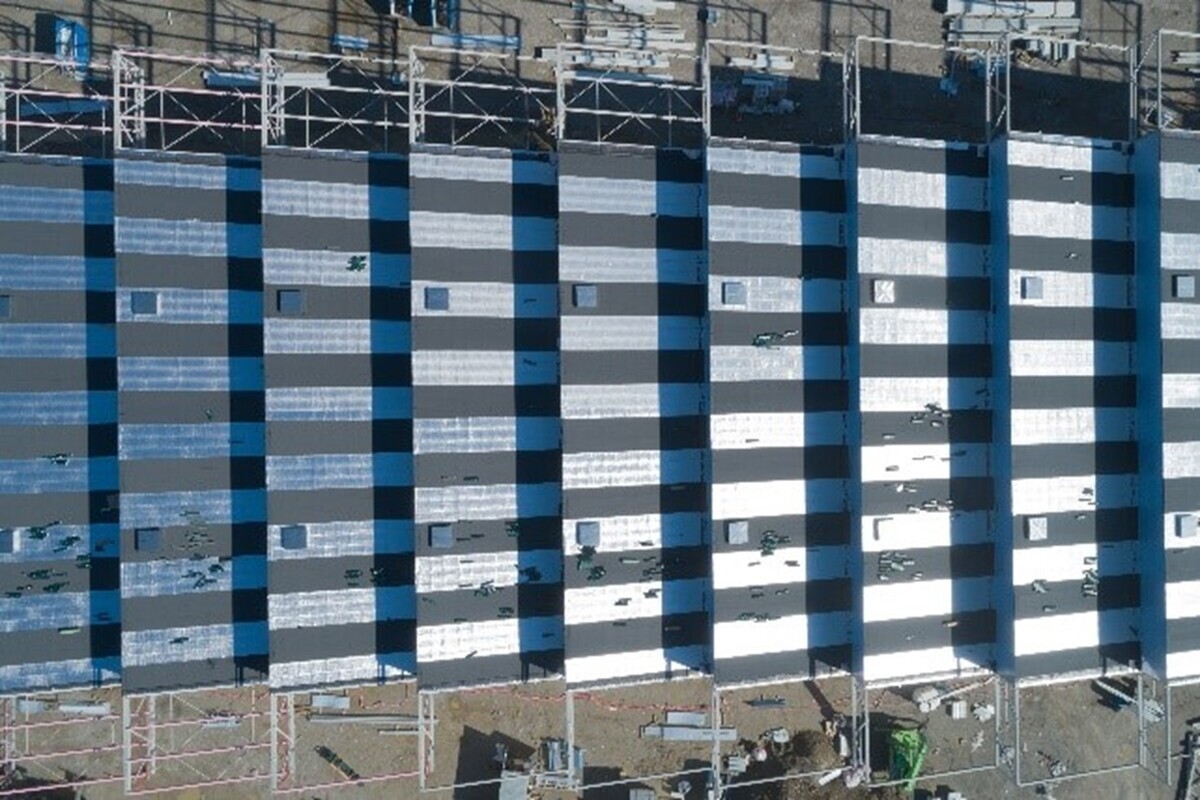
Shed roof
This type of roof was chosen because the openings maximise natural light and protect against heat. It therefore offers greater comfort to users and minimises energy consumption for lighting and ventilation.
Photo credit
Christophe Picci
Reasons for participating in the competition(s)
- Une solution pour des livraisons décarbonées en centre-ville. Les émissions liées au transport des marchandises ont un impact non négligeable mais sont pourtant peu prises en compte dans les politiques de mobilités durables. Les zones de logistique du dernier kilomètre permettent de désengorger les centre-villes et de diminuer la pollution en privilégiant des modes de transport décarbonés. Des bornes de recharges pour tous types de véhicules sont mis à disposition.
- La création de synergies entre d'autres activités. Ce site multi-modal abrite plusieurs acteurs qui peuvent mutualiser leurs compétences et activités.
- Un site d'expérimentation : peut on remettre au goût du jour le transport de marchandises par canaux ? Et utiliser les métros aux heures creuses ?
- Une gouvernance publique / privée. Un consortium . Au-delà de ce projet spécifique, le but est d'inspirer d'autres collectivités à suivre l'exemple !
- Des bâtiments éco-conçus : isolation efficace, consommation énergétique faible, protections solaires, solution en toiture, chaudières à gaz à co-génération, etc.




